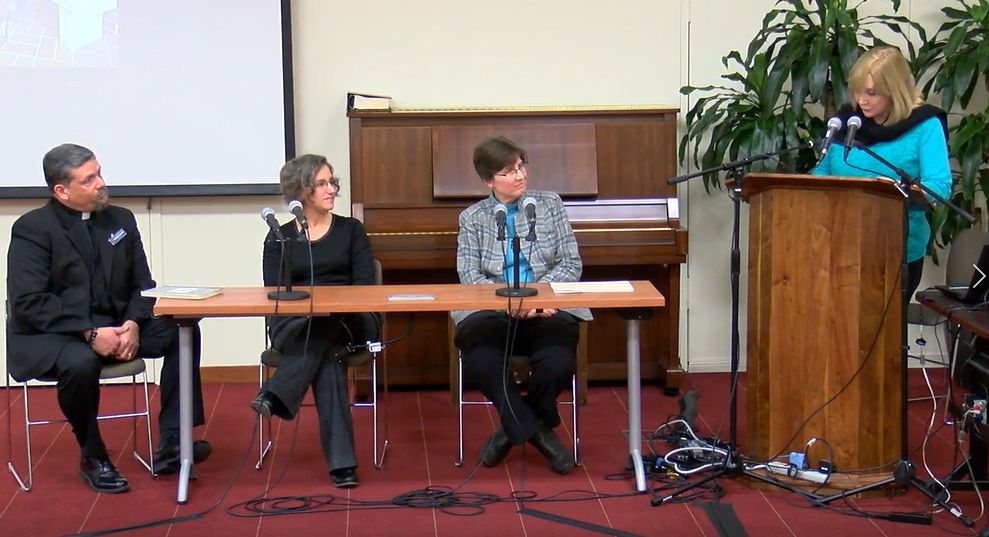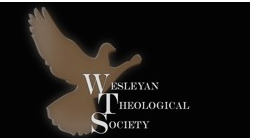Dear WesleyNexus
Colleague:
Human Origins
“If a scientific
civilization is to be a good civilization, it is necessary that increase in
knowledge should be accompanied by increase in wisdom. I mean by wisdom a right
conception of the ends of life. This is something that science in itself does
not provide..”
— Bertrand Russell, The Scientific Outlook
What comes to mind when someone says the phrase “human
origins”? The Jew or Christian may immediately recall, “In the beginning God
created the heavens and the earth”, followed by the story of God creating man
in the image of God. Or we can move to the second chapter of Genesis where God
forms man out of dust, breathing into his nostrils.
Other religions have very different stories about creation and the rise of
humankind. Every culture has a creation myth. The Greek Pelasgian myth has
Eurynome, the Goddess of All Things, rising from chaos, finding nothing, and
proceeding to create all things. The subcontinent of India and its extremely
varied cultures have different stories of creation. In the Americas, we can
study creation myths of Aztecs, Mayans, Athabascans, Patagonians, Eskimos,
Iroquois, Cherokee, Sioux, all different; in Africa as many more; in Australia,
still more; and so on. Every organized religion or culture develops its own
creation myth. Each of these myths follows the pattern described by Mircea
Eliade:
“Myth narrates a sacred history; it relates an event that took place in primordial time, the fabled time of the “beginnings”. In other words myth tells how, through the deeds of Supernatural Beings, a reality came into existence, be it the whole of reality, the Cosmos, or only a fragment of reality — an island, a species of plant, a particular kind of human behavior, an institution.”

— Mircea Eliade (1961) The Sacred and the Profane.
Our religious myths provide us with meanings beyond our physical reality. We recognize that “human origins” may mean quite different things to scientists than to the devout believer. To the anthropologist, human origins probably only extends back to the beginning of archaeological record of tools, seeds, bone finds and so forth. To the evolutionary theorist the phrase extends to speculation about earliest DNA records, to ideas of interspecies similarities.
Scientific efforts at answering the puzzle of human origins are usually associated with Darwin’s phrase “origin of species.” Darwin did not think of his model in the sense of cosmological beginnings, rather, he was describing what he had observed very carefully in nature, primarily from data he gathered from the fauna of the Galapagos Islands. Through his life he did not abandon the Church of England nor become a raging atheist like Dawkins, Harris, and others who wish to deify science and to enhance their own reputations.
Evolution – while serving as an excellent model for the transformation of species — cannot serve as a model of ‘origin’ of species. The scientific method simply cannot study and describe behavior of what the scientist himself cannot define or identify. But this is the very problem which theology or faith clearly embraces, the Creator-who-was-never-created. Faith postulates this Creator, then proceeds from ‘God is’ to what God created, thence to what God might want his or her creation to be, to do. The problem of human origins must remain in the province of theology, of faith. This faith does not invalidate the science of evolution, but does define the boundary between origins and existence; between creation and ‘laws’ for the created.
Being only human, both scientists and theologians have a problem. Some good scientists take their own abilities too seriously and begin pronouncing on theology, as if they had superior knowledge in both science and faith; as if the rules of scientific endeavor played well on the intellectual playing fields of theology. Scientists who propound on the invalidity of theological models based on scientific postulates, sound ignorant and bigoted. Similarly, when theologians pronounce evolutionary models to be invalid, based on perceived conflict with literal readings of scripture, scientists justifiably howl in laughter. This dilemma was recognized by St. Augustine in the fourth century.
Both persons of faith and persons of science must realize that the origin of the universe and the origin of humans, indeed the very origin of life itself, are not known. Despite numerous models, despite reasonable ideas, despite prejudices, as well as wildly irrational ideas, the origin of ourselves and of our universe remains unknown. Even given the enormous detailed knowledge of modern sciences, we do not know why electrons, protons, hadrons, fluids, solids, and gases, foxes and rabbits, fungi and bacteria – and we – actually exist (assuming we are not inhabitants of the matrix). While we may describe with great specificity how these created physical entities function, we are no nearer to explaining why. Another sentence from Bertrand Russell:
“It is obvious that no direct confirmation of
a belief about a past occurrence is possible, because we cannot make the past
recur.”
— Bertrand Russell (1927) Philosophy.
If we follow Mr. Russell, this question of origin – this vital question, Why? – is likely to remain unknown, itself being a good example where the grounds of logic fail to provide a firm answer. We cannot make our own creation recur, thus our sciences can never answer our query.
We have begun with Russell and returned to Russell, suggesting perhaps that beginnings are answered through faith, and endings are answered through faith, but our life between is fully occupied with science and logic (though our behavior may need to be governed through faith). Hence the vitality and vitalness of our explorations in science and faith.
A few interesting and helpful reads for this subject:
Milton Covensky. (1966). The Ancient Near Eastern
Tradition. Harper & Row.
Charles Darwin. (1859. 1871) The Origin of Species and The Descent of Man.
Modern Library.
Robert Graves. (1988). The Greek Myths. Moyer Bell Ltd.
Klaus K. Klostermaier. (1994). A Survey of Hinduism, 2nd ed. State Univ
oh New York Press.
Reinhold Niebhur. (1949). The Nature and Destiny of Man. Charles
Scribner’s Sons.
Many thanks to
WesleyNexus Board member Bob Dennis for this opening thought piece, as
it leads into our next article, the report on Human Origins, the topic
of our Evolution Weekend event. We appreciate the
contributions we received and the sponsorships that helped us underwrite this
event, the most costly thing we do each year, including a livestream of the
event for our colleagues around the country. Now we must replenish our coffers
to get us through the rest of the year. Please review the video of the February
10 program now up on our website, and make your plans to use it as a
resource in your local congregation. Looking forward, we will continue to
develop programs throughout 2019 as funds permit. We will need your support and
hope you will consider helping us out. WesleyNexus is a 501(c)(3) charitable,
educational organization, and we will acknowledge all gifts from individuals for
tax reporting purposes. Thanks in advance for your support.
God Bless,
Rick, Maynard, and the rest of the
WesleyNexus Board of Directors
*********************************
Evolution Weekend in Maryland – February 10 event live and live streamed.
(Video is available on Youtube)
For the 6th consecutive year, WesleyNexus produced the “Evolution Weekend in Maryland” event, with the assistance of our partners and sponsors: The Clergy Letter Project, the Institute on Religion in an Age of Science (IRAS), and the Baltimore-Washington Conference of the United Methodist Church. For once we had a bright and sunny Winter day, unlike previous occasions when our event audience had to fight ice and snow. Our dashboard report from the live-feed indicated that we had double the number of locations around the country where individuals and church groups connected to the livestream – one church reported they had close to 100 people attend for their discussion. The topic, Global Community and the Science of Human Origins, seemed to get a lot of attention, as did our two featured presenters. Many thanks to Dr. Briana Pobiner, Research Scientist, National Museum of Natural History, at the Smithsonian Institution, and Dr. Constance Bertka, President, Science and Society Resources and Smithsonian Consultant for the Broader Social Impacts Committee. The program highlighted the current facts as we know them: paleoanthropological discoveries continually provide us with new insights into the six million year history of humanity. While the fundamental narrative of life’s inter-relatedness through evolutionary processes remains intact, ongoing fossil and archaeological discoveries and advances in genetic studies enrich our understanding of the similarities, differences, and the relationship of modern Homo sapiens to earlier human species. As the opening observations in this newsletter point out, religious traditions in pursuit of global understanding and reconciliation will find both challenges and opportunities in the science of human origins.

For the 6th consecutive year, WesleyNexus produced the “Evolution Weekend in Maryland” event, with the assistance of our partners and sponsors: The Clergy Letter Project, the Institute on Religion in an Age of Science (IRAS), and the Baltimore-Washington Conference of the United Methodist Church. For once we had a bright and sunny Winter day, unlike previous occasions when our event audience had to fight ice and snow. Our dashboard report from the live-feed indicated that we had double the number of locations around the country where individuals and church groups connected to the livestream – one church reported they had close to 100 people attend for their discussion. The topic, Global Community and the Science of Human Origins, seemed to get a lot of attention, as did our two featured presenters. Many thanks to Dr. Briana Pobiner, Research Scientist, National Museum of Natural History, at the Smithsonian Institution, and Dr. Constance Bertka, President, Science and Society Resources and Smithsonian Consultant for the Broader Social Impacts Committee. The program highlighted the current facts as we know them: paleoanthropological discoveries continually provide us with new insights into the six million year history of humanity. While the fundamental narrative of life’s inter-relatedness through evolutionary processes remains intact, ongoing fossil and archaeological discoveries and advances in genetic studies enrich our understanding of the similarities, differences, and the relationship of modern Homo sapiens to earlier human species. As the opening observations in this newsletter point out, religious traditions in pursuit of global understanding and reconciliation will find both challenges and opportunities in the science of human origins.
Dr. Pobiner utilized pictures of fossilized skulls to illustrate the accumulation of human qualities over time, followed by artists’ illustrations to make graphic the diversity of human ancestors and ancient relatives in the Homo genus. A major factor in the development of what we call humanity, she said, was the advent and evolution of caring and sharing – caring for our young and sharing food within the community. She also presented a detailed chart of the key evolutionary leaps over the six million year span of human development, bringing us right to the present. Dr Bertka addressed the origin and development of values and spiritual qualities over time, emphasizing the importance of community-building that nourishes empathy and identity so important for human self-understanding. While several questioners asked Dr. Pobiner for some clarifications and factual details, most of the questions from the audience and several from the internet were directed to Dr. Bertka – such as “Where is God in this picture?” Her response, backed up by the thoughts of Dr. Eliezer Valentin-Castanon (our WesleyNexus respondent on the panel), was an “all-inclusive” one: rather than thinking about some sort of “divine intervention” at any points along the way, Dr. Bertka and Dr. Valentin-Castanon affirmed a view that affirms God’s presence in the world at every step, and every moment, along the way…. The point being: the divine presence is manifest in a caring for creation (including the human community) at every moment, which devolves into an imperative for us (as humans) to commit our attention and intentions to the maintenance of creation so that future generations can continue to flourish on the earth. The is the point of view that undergirds Dr. Pobiner’s main message, that we as humans should continue embracing and connecting to our shared past. The edited video of the Evolution Weekend event is now accessible to everyone on the WesleyNexus website www.wexnex.org – just click it open and you can easily use it as a discussion topic in your own congregation.
*********************************
Bioengineering, Gene Editing and the Human Future – Special Session at AAAS in Washington DC

The 2019 Annual meeting of the American Association for the Advancement of Science (AAAS) took place in Washington DC February14-17 at the Marriott Wardman Park Hotel and Conference Center. This event annually brings together more than 8,000 scientists from around the globe, and it is an opportunity for the dozens at AAAS Affiliate professional organizations to hold their meetings as well. The Institute on Religion in an Age of Science (IRAS) is one of the oldest AAAS affiliate organizations, and as has happened in the recent past, when feasible IRAS sponsors a special event at the AAAS meetings. On the afternoon of February 14, immediately prior to the AAAS President giving the keynote opening address to conferees, IRAS sponsored a session on the theme of the 2019 IRAS Summer Conference, “Bioengineering, Gene Editing and the Human Future.” A number of WesleyNexus members, as well as participants in the local science & religion dialogue groups, and staffers from the Dialogue on Science, Ethics and Religion (DoSER) participated, as did some 175 others who were registered to attend the AAAS conference. The topic drew huge numbers of full AAAS members as well as graduate students from around the world; the event was filmed by NHKTV, the public television network in Japan. Human gene editing is quickly outstripping the decision-making mechanisms we have in place for approving or regulating CRISPR technology. The technology to directly manipulate the genomes of plants, animals and even humans is already in use. Can it be rationally managed and applied ethically?
Addressing this and other questions we had several experts serving on two panels back-to-back. First, the session on gene editing featured Dr. Arvin Gouw, Vice President for Research & Development, Rare Genomics Institute and Nanotechnology Fellow, Stanford University School of Medicine; Dr. Kareem Washington, Department Chair and Director of Graduate Studies, Department of Human Genetics, Howard University; and Dr. K.N. SivaSubramanian, Neonatologist and pediatrician, Georgetown University School of Medicine. Dr. Gouw outlined the technical process in CRISPR technology, and Dr. Washington explained how this technology is rapidly gaining favor and widespread usage in laboratories and medical applications, while Dr. Subramanian addressed the ethical questions involved that remain beyond the international regulatory mechanisms now in place.
On the second panel addressing Bioengineering & the Human Future. Dr. Gary Sherman, Associate Vice President at Virginia Technical Institute & State University, former program leader at the USDA reproductive genetics laboratory on microbiology, toxicology & molecular biology, addressed the challenge of feeding the expanding global population when there is no more arable land and diminishing supplies of clean water – bioengineering seeds and plants appears to be the only viable alternative. Dr. James Peterson, Director of the Benne Center at Roanoke College and associate professor at Virginia Tech Carillon School of Medicine, focused his remarks on the principals underlying bioengineering projects, with a concern for maintaining the values of human diversity. Dr. Georgia Dunston, professor emerita in Microbiology and Genetics at Howard University School of Medicine addressed the challenges ahead in maintaining our humanity in the face of rapidly expanding technological advances in manipulating the human genome.
IRAS had been assigned a room for this session with a capacity for 100 people, but so many scientists showed up that an auxiliary room had to be opened up, and still people were standing in the hallways. In spite of the chaotic circumstances, most people in the crowd stayed through both two-hour sessions, and a number of graduate students expressed interest in pursuing the subject and submitting papers for the IRAS Summer Conference on Star Island (off the coast of Portsmouth, New Hampshire) June 22-29, 2019. More information can be found on the IRAS website – www.iras.org – and it should be noted that there are many discounts available, for first-time attendees, for graduate students, and for scholars whose papers are accepted for session presentations. Registration is now open for the IRAS Summer Conference, and questions not addressed on the website can be sent to Dr. Maynard Moore, who serves as 2019 Conference Co-Chair – emaynard8@yahoo.com.
*********************************
What Science Can Learn From Religion by David DeStano with reply by Steven Pinker

In a recent NY times opinion piece, David DeStano argues for the value of religion within a scientific culture. Quoting Krista Tippet, host of the public radio show ‘On Being”, DeStano states that “religions offer techniques — or “spiritual technologies,” that help people endure difficulties, change their views or move them toward action. These techniques seem to work by nudging our behavior subconsciously’. Though not an apologist for religion, DeStano understands that studying religion can help unlock the secrets of human behavior and are worthy of being taken seriously. This generated an energetic response from Steven Pinker, who bluntly asks and answers the question “what can science learn from religion? Not much”. In reading both articles, there appears to a case of significant near-sightedness in both writers that prevent them from seeing a broader picture. As stated above, “the scientific method simply cannot study and describe behavior of what the scientist himself cannot define or identify”. But the questions that religion struggles to answer remain. While religion may not provide much specific content to the results of science, it does provide much to many religious scientists who, from the perspective of faith, provide a broader vision than neither of the authors are able to see. In a limited sense, they are both authors are right and worth contemplating but there is more in science and religion than is captured in science alone. Religion, as with literature, art, music and philosophy provide knowledge of a different kind that require different eyes able to see different modes of truth. The article by DeStano can be found here and the one on Pinker can be found here.
*********************************
Join the Discovery & Faith Community and Help Change the Narrative
Update and report by Jennifer Secki Shileds, Director, Discovery & Faith
Jesus gave the church one primary mission—to teach his hopeful, “good news” way of living—to follow his example and learn how to live lives of mercy, forgiveness, and redemption. This “good news” is needed as much today as in Jesus’ time; but, sadly the church is not fully living into its Christ-given mission to teach this way of life. You no doubt already have a sense of this—dwindling attendance in many churches and the increasingly gray-haired character of many congregations point to it. There is data to help us understand what’s going on. One thing we do know is that the church is failing to demonstrate how Christian faith—the expression of following Jesus—makes sense in a world shaped by science.
Young people are leaving the church in historically unprecedented numbers.1 60%will leave the church and the faith after age 15. Let that sink in. 60%. Many young Christians have come to the conclusion that faith and science are incompatible.One of the top reasons young people are leaving the church today is their perception that the church is anti-science.1 Research demonstrates that young people in schools worldwide have the impression of a conflict between science and religious faith by the age of 11.2
It is clear that making disciples today absolutely requires bridging the intellectual gaps between science and biblical faith; between Genesis and evolution; between knowledge and wisdom; between learning and loving. We need a holistic approach that nurtures an integrated understanding of reality beginning at very early ages.
To meet this need, Discovery & Faith was launched in Fall 2016 as an auxiliary program of WesleyNexus. Its mission is to help children and families experience the harmony between science and biblical faith. We develop a wide variety of web-based resources for use in the church and home to explore the connections between God’s world and Word. Our side-by-side approach brings hands-on science alongside Bible stories presented in their ancient near Eastern context. We also offer training workshops to pastors and Christian educators so that churches can be better equipped for ministry in a science-shaped culture.
I invite you to check us out at www.discoveryandfaith.org or follow us on Facebook. From our website, you can subscribe to our monthly e-newsletter. Whether you are pastor or lay; parent or grandparent; an educator or a concerned citizen–please take a moment and join our movement. Every person counts as we try to change the narrative. I invite you to become part of the Discovery & Faith community and help us write a new story about science and Christian faith as our witness to the next generation.
References cited
1You Lost Me: Why Young Christians Are Leaving Church… And Rethinking Faith by Dave Kinnaman (2011, Baker Books, Grand Rapids, MI).
2biologos.org/blogs/chris-stump-equipping-educators/new-approaches-to-communicating-science-and-faith-to-children
*********************************
Wesleyan Theological Society Annual Meeting – Friday-Saturday, March 15-16, 2019.

The 2019 WTS Annual meeting will be hosted by Wesley Theological Seminary in Washington DC. The partner societies will be meeting on Thursday, March 14, 2019, including the Wesleyan Philosophical Society, The Wesleyan Historical Society, and the Wesleyan Liturgical Society. Registration is open, and membership information is included on the website and can be secured at the same time as conference registration. Several members of the WesleyNexus Board will be presenting papers in the Science and Theology section of WTS, and Advisory Board member Dr. Thomas Jay Oord will be making several presentations. Link to the WTS Store to register for the 2018 Meeting:
https://my.nnu.edu/ics/Extensions/Store/store.aspx?StoreCode=WTSC
*********************************
Beyond Conflict: Science, Faith and the Big Questions.
Biologos Conference, March 27-29, Baltimore, MD – earlyBird Registration extended

“As we explore the harmony between science and faith, we’re delighted to present some some of the top scholars and communicators in the BioLogos community. You’ll hear from BioLogos founder Francis Collins, pastor and author John Ortberg, journalist Jonathan Merritt, astronomer Jennifer Wiseman, church historian Justo González, Oxford science-religion scholar Bethany Sollereder, BioLogos President Deb Haarsma, and more! Worship throughout the conference will be led by musician, author, and pastor Aaron Niequist”. Biologos extended early-bird registration and added fun new discounts for church and school groups, students, and ministry leaders. If you are unable to travel, take a moment to forward this email to your friends or college students on the east coast.
See discounts and register today at:
http://conference.biologos.org/conference-registration/
For more information, click here.
*********************************
Reminder
2019 IRAS Summer Conference: June 22-29 on Star Island

The 65th Annual Summer Conference sponsored by the Institute on Religion in an Age of Science is scheduled for June 22-29, 2019 in Star Island off the coast of Portsmouth, New Hampshire.
The CRISPR Apple on the Tree of Knowledge
Bioengineering, Gene Editing, and the Human Future:
Human gene editing is quickly outstripping the decision-making mechanisms we have in place for approving or regulating technology usage. The technology to directly manipulate the genomes of plants, animals and even humans is developing rapidly and is already in use. Can it be rationally managed and applied ethically? What are the medical, economic, environmental, and social consequences of genetic manipulation? At this conference, scientists, theologians, religious scholars and ethicists will offer illuminating and thought-provoking perspectives on the issues surrounding the gene-editing technology known as CRISPR. Scientists will explain the technique of gene editing with CRISPR and ethicists will ponder the impacts on society, from pest control to designer babies. What are the implications for agriculture and world hunger? What about medical advances that are too costly for most of the world? Theologians and religious scholars will discuss how we understand human nature and responsibility from within various religious traditions such as Christianity, Islam, Judaism, Buddhism and Hinduism. Most fundamentally, we will explore ethical issues such as therapy versus enhancement; species elimination versus global epidemic; germline intervention; and the long-term effects of bioengineering and genome editing that are within the realm of CRISPR possibility.
The Call for Papers is now out, with an extended deadline of March 1. and all theologians and scientists, professionals and grad students, are encouraged to submit for presentations or poster sessions. Scholarships are available. Discount are avaialble for first time conferrers. For more information go to the IRAS website www.iras.org.
